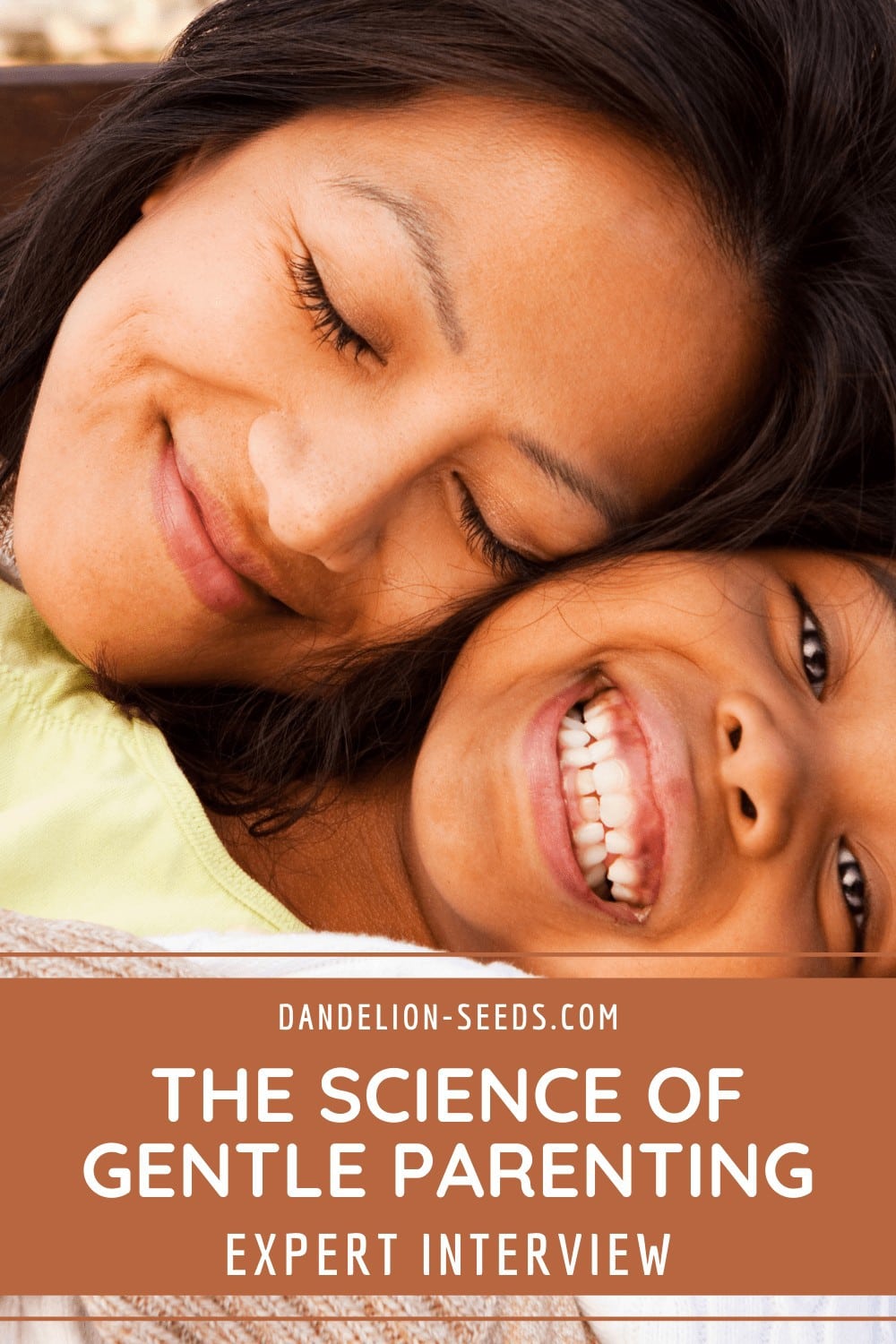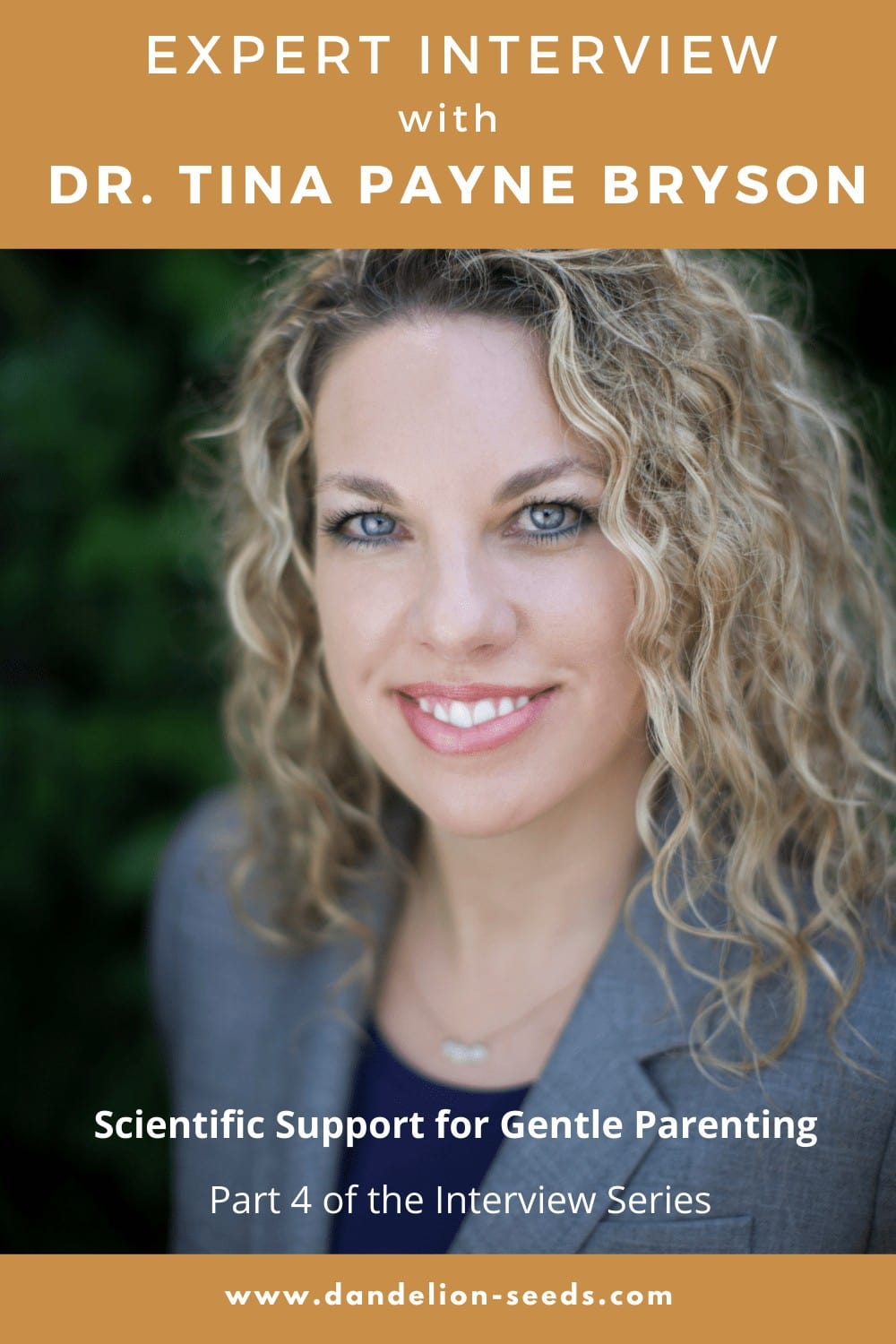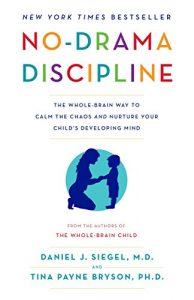
Sign in
Don't have an account with us? Sign up using the form below and get some free bonuses!

Below is Part 4 from my recent interview with Tina Payne Bryson, Ph.D. about her incredible new book, The Bottom Line for Baby. In this segment, she talks about the scientific support for gentle parenting.
If you missed Part 1, Part 2, or Part 3, you can catch up here.
You talked about gentle parenting and attachment parenting early on, and said how it certainly can be linked to secure attachment, but not necessarily. Some of the biggest pushback we get for gentle parenting sounds like this:
So, for the parent who wants to breastfeed, possibly even do extended breastfeeding; for the parent who wants to baby wear; for the parent who wants to sleep with their child safely in the same room; and practice all of these crunchy / positive / conscious / gentle parenting (or whatever you want to call it) -- practice THIS way of parenting versus the mainstream alternative:
I love that you ask this because we do, especially from family members, get a lot of pushback about this kind of parenting.
I remember a time when I had a one-year-old son, and my other son was four. My four-year-old was having a really hard time, and my one year old was also crying.
I crouched down low and I was saying, "You're having a really hard time. What is your body saying it needs right now?" And while I'm doing all of this reflective dialogue, my grandmother started criticizing me.
We used baby sign language, you know, which was phenomenal. I'm a huge fan. My kids, before they had the motor capacity to talk, could tell me if they were hurt. They could tell me if they needed comfort.
It was just phenomenal. I loved it, and [my family] was like, "They're never going to talk. You're raising Coco the ape, you know. They're never going to talk."
And of course they were early talkers. They were just fine.
But when [my family] would see me parenting and getting down and all the stuff, at first they were like, "You just need to smack him and tell him, you know..." They were just...they didn't get it.
They were worried that I was being really indulgent.
As my kids got older, I remember -- I'm feeling the emotion of this right now too. It's okay if I get a little emotional.
I remember my grandma saying, "I can't believe how amazing your kids are and how much facility they have in handling themselves. They're so well-behaved."
She was shocked because she thought they were going to be little monsters.
And she added, "They're so well-behaved. I wish I had known about what you know. How I wish I had parented that way." - Tina Payne Bryson, talking about the transition her extended family made to supporting gentle parenting
It was so amazing because this was a grandmother who had significantly avoidant attachment that she passed down to my dad, and my dad also parented me in that way.
So, for her to see it, it just felt like such good affirmation.
What the science tells us -- and this is what's so great about The Bottom Line for Baby -- is you can turn to the discipline entry, and you can be like, "Here, mother-in-law, read this -- read the science [on gentle parenting] and then we can talk about it."
The the science is super clear that when we push kids to be independent or to be well-behaved, where we're just focusing on the behavior; if we push them to do those things without our support, it actually backfires. - Tina Payne Bryson, Ph.D.
It actually makes them either more dependent because they developmentally weren't ready for [the task] without our support. Or, they actually learn not to share their distress with you. So, they just stay uncomfortable.
They just sit with those alone feelings.
What the research shows is that when you are a safe haven, and you practice positive, respectful, gentle parenting, you really focus on those 4 Ss -- Safe, Seen, Soothed, Secure -- it promotes better behavior.
They're always my answer for every situation.

What the research says is that [gentle parenting] actually promotes independence; [gentle parenting] promotes better behavior. All of these things.
The science is on our side with [gentle parenting], you know, including extended breastfeeding.
No one knows your child like you do. You are the expert on your child. Get informed. Yes, read books. Read about what the science says, but you can't follow every single thing that the science says.
Some of them are even [contradictory], like one says be a really well-rested parent and the other one says breastfeed your child on demand.
You can't be both. You can't follow both of those.
Every child is unique. Follow the lead of your child. - Tina Payne Bryson, Ph.D.
...
Around this gentle parenting, what we're doing is we're giving kids reps [like exercise that builds muscles] for using their prefrontal cortex by saying, "Hmmm. I'm noticing this. How do you think we can solve that problem?" instead of saying, "Get over there and sit down."
And what we know from the science, too, is that parents who do [this gentle parenting approach] instead of a more command-and-demand authoritarian type of parenting -- it doesn't change their children's behavior.
Their children learn to hide their behaviors and when they're adolescents. The science says they don't go to their parents when they're in tricky situations. They go to their peers.
When our children come to us with bad behavior, it is often a symptom of a dysregulated nervous system. They're saying, "I need help right now."
When we respond to them, we need to show up for them. Even when they say something like, "I wanted popcorn. Why won't you give me popcorn?" And you're like, "Really? Because I'm taking you to the movies and you're going to say that?" You know, you get so upset about your child being "spoiled."
In that moment, if you respond that way, our child is like, "I just shared how I felt with them. I'm really disappointed and I shared that and I feel criticized -- and that didn't feel good."
When our children communicate with us and we respond in ways that don't feel good to them, they will stop sharing with us.
When we say, "I don't want to hear it," they internalize that. So that doesn't mean I give them the popcorn. I can say, "I know you're so disappointed. You wanted the popcorn. We're not buying it today. And I know it's disappointing. It's hard to feel disappointed."
So, it's not about the boundary. I'm going to hold the boundary, but it's really about saying "yes" to our children's internal experiences, showing up for them -- and the science has our backs on this. - Tina Payne Bryson on the importance of respectful, gentle parenting
Extended breastfeeding is supported by every health organization around the world...If that works for you and your family and it feels right -- do it.
I want to empower you. You know your child. Trust your child. Trust your instincts.
If anybody's criticizing you, listen, they might have a point. But don't let it rule your life.
Absolutely, and if they need the best reference book that I have found to date on why we do what we do for babies -- your new book is it. I will unequivocally recommend it to every new parent, every existing parent -- even if they already have a child, or two, or 15.
There's just so much great, compelling information in here and the world needs to know that there is some really smart gentle parenting advice that we know to be smart because we have the science to prove it.
We don't necessarily have to repeat these generational patterns that even you, and so many of the rest of us, have had. We can choose to do what works for our family.
Science has our backs when we make what seem to be different decisions from so many around us. Your book provides exactly the kind of validation that we need as we go into gentle parenting.
So thank you so much for writing it, for writing all the other books you've written, for existing. Thank you, also, for being a resource for people around the world who really just need to know "I can figure this out. This child might just make it to day 3 and day 4 and beyond, because it all feels new sometimes."

And you know I think, too, we have to remember everybody's kid is different. What works for one kid doesn't work for the next. I think it's important that we really follow our children's lead.
And I want to say to you to parents, if you don't have time to sit and read -- and I'm actually writing an article right now for parents never who find time to read -- all of my books are in audio form.
I've done a lot of podcasts just like this one on No-Drama Discipline, Whole-Brain Child and on my website TinaBryson.com. You can find tons of free content.
I post on Instagram all the time, just helpful little snippets and resources, so you can find me there as well.
But I want to say one final thing if it's alright, Sarah, and then I'll let you close this out.
Parents, I just want to say to you -- you sacrifice so much for your children. I know you do. If you're listening to this podcast, you're a parent who is really intentional, and we're so good at sacrificing and giving to our children.
But I want to say to you that you matter, too. And we need to really, really -- and I'm so I'm such a hypocrite; I was terrible at this when my kids were younger and I'm better at it now -- but you really do matter. Your children, what they need most from you, is you. And for you to be present.
In order to do that, you really do have to take care of yourself. It's one of the best things you can do for your kids.
That is an important gift and an important takeaway, so thank you for that. I will do my best to implement that personally, and encourage the other parent seeing this to do that as well.
We've got to keep working on it.
Exactly. Thank you so much, Tina.
Additional recommended reading by Tina Payne Bryson, Ph.D. and Daniel J. Siegel, M.D.:
